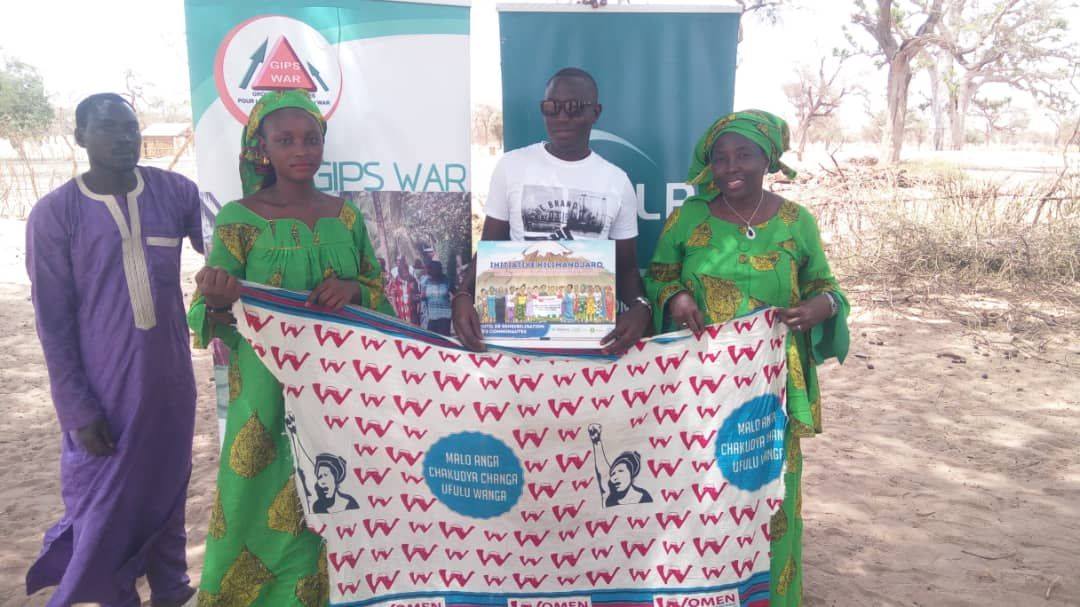
Since the launch of the African Union’s Great Green Wall program in 2007, it has been beset by challenges—including corruption, terrorism, and now the pandemic. One very positive outcome has been that individual activists and civil society organizations are continuing to establish their own, independent green initiatives to plant trees, introduce more sustainable crops and irrigation, and create green jobs. In Senegal, more than 11 million trees have been planted. But beyond that, green initiatives are being led by women to build agricultural skills and food security even in some of Senegal’s poorest regions. One important contributor is Julie Cissé who is the director of WLP Senegal/GIPS-WAR and a leader in pan-African campaigns for the environment, such as the Kilimanjaro Initiative. She is also the organizer of a range of local projects that encourage women to take on sustainable, small-scale agriculture and animal husbandry. These climate justice projects are implemented as part of GIPS-WAR’s Bay Dunde Program, which encourages women to discover the value of the earth and invest in its preservation.
GIPS-WAR’s Bay Dunde Program teaches women to consume sustainably by focusing on organic and fair-trade products that avoid soil degradation. It helps them to make personal commitments to protecting and preserving the land. Activities frequently include trainings for local leaders, women and men, to encourage them to strengthen policies to combat desertification and drought, lessons on specific agricultural practices, and press conferences to spread the word. GIPS-WAR has also been tireless in its efforts to spread its messages through social media, as well as on the radio.
GIPS-WAR’s climate justice efforts have led to the acquisition of 78 hectares of common land being set aside for women in six of GIPS-WAR’s 11 regions of operation. The arability of these plots of land has been enhanced with irrigation systems, which have made the women far less reliant on the typical three-month rainy season, and have led to larger as well as more frequent harvests. The women farmers have been provided with micro-business training and economic management skills, so that they have been able to set aside a certain portion of their agricultural yield for their own use to feed their families, with the rest being marketed and sold for profit. When the pandemic hit Senegal, GIPS-WAR’s trainees have been among the mothers and sisters in the rural areas best prepared to pull through the food shortages in their communities.
Related Content
Elevating Women's Voices in the Fight for Land Rights and Climate Justice: An Interview with Nzira Deus
Last week, governments, development partners, civil society, scholars, and private sector representatives convened at the World Bank Land Conference in Washington DC, to discuss research, critical issues, and policy related to the land sector. This year's theme, "Securing Land Tenure and Access for Climate Action," emphasized the often-overlooked role of land tenure in climate change adaptation and mitigation. Nzira Deus, Executive Director of WLP’s partner in Mozambique, spoke at the conference about how civil society organizations in Mozambique are bridging the gap between policy commitments and ground-level change, especially when addressing the barriers women face in accessing land rights.
Moroccan women’s rights activists use the 68th Commission on the Status of Women to call for another historic reform of the country’s Family Code
In 2004, after decades of advocacy by women’s and human rights groups, Morocco’s Parliament adopted a new Family Code, called the Moudawana. The 2004 Moudawana reform was considered one of the most important family law reforms for women’s rights in the MENA region. The legislation recognized women’s right to self-guardianship, child custody, and raised the legal age of marriage.